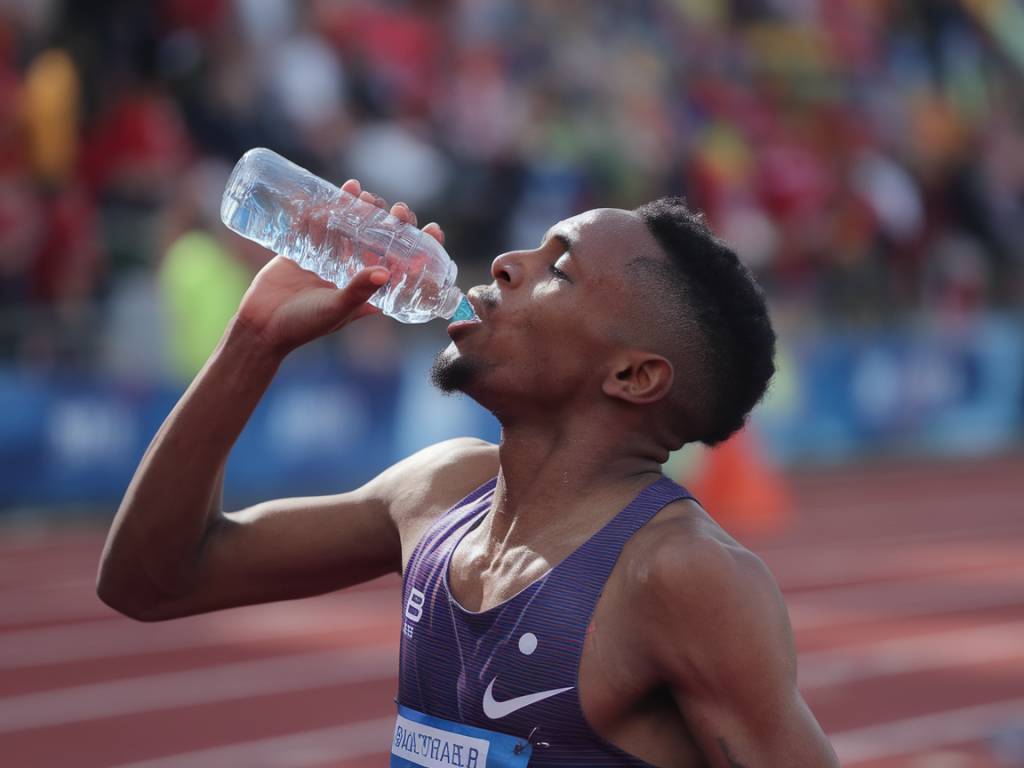The Science Behind Hydration and Performance
Ever felt like your energy tank runs out quicker than it should during a workout or a game? It might not just be your fitness level—it could be your hydration strategy, or rather, the lack of one. Water is the unsung hero of athletic performance. Your body is about 60% water, and every single process inside your body—from transporting nutrients to regulating your temperature—relies on it. Hydration is more than just about quenching your thirst; it’s your supercharge for success.
Dehydration, even by just 2%, can significantly impact your endurance and focus. Imagine running a marathon while your engine is sputtering—your legs are heavy, your thoughts are foggy, and every step feels like a climb. That’s essentially what happens when your body is dehydrated. And yet, some athletes underestimate the critical role of proper hydration. Are you one of them?
How Hydration Affects Your Body During Exercise
When you exercise, your body heats up like a finely tuned engine. As you sweat, your body loses fluids and electrolytes—those essential minerals like sodium, potassium, and magnesium that keep your muscles firing and your heart pumping steadily. Without proper fluid replenishment, your performance starts to drop faster than a cyclist on a downhill slope.
Ever experienced cramping mid-game or felt a dizzy spell sneak up on you during a run? That’s your body waving a red flag. Dehydration reduces blood volume, making your heart work harder to pump oxygen to your muscles. The result? Reduced stamina, sluggish recovery, and increased risk of injury.
And it’s not just a physical hit—your brain feels it too. Water is crucial for cognitive function. Whether it’s planning your next move in a football game or maintaining focus during that last rep at the gym, your hydration levels influence how sharp you are under pressure.
Signs You’re Not Drinking Enough
So how do you know if you’re dehydrated? It’s not always as obvious as feeling thirsty. Here are some telltale signs:
- Dark yellow urine (yep, it’s a good indicator!)
- Dry mouth or throat
- Fatigue or sluggishness
- Dizziness or lightheadedness
- Muscle cramps
- Decreased performance during workouts or sports
If you’re ticking off more than one of these, it may be time to reassess your hydration habits.
A Winning Strategy for Hydration
Now that you know how hydration impacts your performance, let’s talk about solutions. Staying hydrated is equal parts science and strategy. Here’s how you can keep your energy levels soaring:
Before Exercise: Preload your hydration. Aim to drink about 17-20 ounces of water 2-3 hours before exercise. Add some electrolytes if you know you’ll be sweating buckets during an intense session or a hot day.
During Exercise: This part depends on the intensity and duration of your activity. For workouts longer than an hour, aim for 7-10 ounces of water every 15-20 minutes. Consider sports drinks if you’re sweating heavily, as they help replace lost electrolytes.
After Exercise: Post-workout hydration is crucial for recovery. The goal? Replenish what you’ve lost. A good rule of thumb is to drink 20-24 ounces of water for every pound of sweat you lose. If you want to get precise, weigh yourself before and after the session to gauge fluid loss.
Water vs. Sports Drinks: What’s the Right Choice?
Not all hydration is created equal, and you might be wondering: “Do I need fancy sports drinks, or is water enough?” The answer lies in your activity and sweat rate.
For short, low-intensity workouts, good old water does the trick. But if you’re engaging in intense or prolonged activities (think marathons, cycling races, or hours of basketball), sports drinks can be a game-changer. They not only rehydrate but also replenish lost electrolytes and provide quick carbs for sustained energy.
That said, steer clear of sugary drinks disguised as « sports fuel.” Too much sugar can do more harm than good.
Pro Tips to Stay on Top of Your Hydration Game
Let’s make hydration an effortless habit. Here are a few impactful tips to keep you at the peak of your game:
- Carry a water bottle: It’s simple but effective. Keep one handy at all times, whether you’re at the gym, the office, or on a hike.
- Set reminders: If you’re prone to forgetting, set alarms or use hydration-tracking apps to stay consistent.
- Make it tasty: Not a fan of plain water? Add a slice of lemon, cucumber, or mint to give it some zing.
- Hydrate with food: Fruits like watermelon and oranges, as well as vegetables like cucumber and celery, are packed with water and nutrients.
- Know your sweat rate: Everyone sweats differently. Pay attention to how much fluid you lose during exercise and tailor your hydration plan accordingly.
A Coach’s Perspective: The Ripple Effect of Proper Hydration
A coach once told me, “Hydration doesn’t just affect athletes physically; it’s a mindset. An athlete who takes care of the small things, like staying hydrated, is usually the one ready to put in the work on and off the field.” That struck a chord. Keeping water in your routine isn’t just a bodily necessity—it’s a mental commitment to excellence. So, the next time you’re struggling to push through that last lap or drill, ask yourself: Have I fueled my body, my engine, with enough water today?
Hydration isn’t fancy, but it is foundational. And like most simple things done right, it makes a world of difference.
